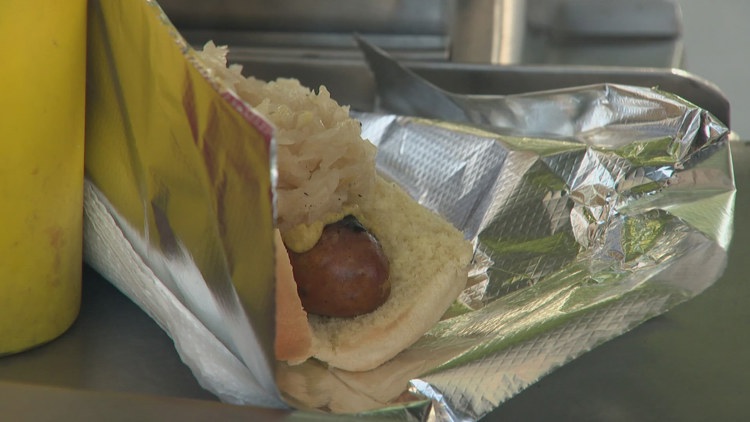Understanding Food Safety in Denver’s Mobile Vendors
Denver is known for its vibrant food scene, especially around events and games. While the city offers a wide array of dining options, it’s also home to some unlicensed food vendors who occasionally set up shop within the city limits. These vendors may not always have the proper permits, which can raise concerns about food safety.
The Denver Department of Public Health and Environment (DDPHE) is actively working to educate these vendors about the importance of obtaining licenses. However, if an inspector finds that the food being sold is safe, the city may not immediately shut down the vendor. This approach allows for a balance between public health and the practicalities of managing a dynamic food environment.
In total, there are 640 active mobile food licenses in Denver. According to DDPHE, inspectors identify imminent health hazards or significant violations that require temporary or permanent closure in approximately 13.7% of inspections. The department has set an internal goal of keeping this rate around 10%, reflecting its commitment to maintaining high standards for food safety.
How to Identify a Legitimate Food Vendor
One of the simplest ways to determine if a food vendor is operating legally is to ask for or look at their Denver business license. This document confirms that the vendor has met the necessary requirements to sell food within the city. If you’re uncomfortable asking directly, there are other signs that can help you make an informed decision.
Key Indicators of a Safe Food Vendor
Handwashing Practices
Jordan Jeske, a food vendor inspector with DDPHE, emphasizes the importance of handwashing in preventing illness. “The easiest way to get people sick is if you can’t wash your hands,” he said.
When evaluating a vendor, look for a handwashing sink on their cart. It’s also important to observe the vendor’s behavior. Ensure they are washing their hands regularly, especially after touching money or their face. If the vendor is wearing gloves, check that they are changing them frequently and washing their hands after handling cash or other potentially contaminated surfaces.
Food Storage
Another critical factor is how the vendor stores their food. Coolers are essential for keeping unprepared items, such as hot dogs, fresh until they are ready to be cooked. For hot foods, look for a hot well that maintains the appropriate temperature before serving. Alternatively, the vendor should keep the food on the grill if it’s being prepared on-site.
Jeske also recommends checking for an overhead cover to protect the food from elements like rain or wind while it’s cooking or being held at a safe temperature.
Menu Transparency
Lastly, pay attention to the menu. If there are undercooked items, they should be clearly marked with a disclaimer explaining the risks associated with consuming them. This transparency helps customers make informed choices and ensures that vendors are adhering to food safety guidelines.
By being aware of these key factors, residents and visitors can make safer choices when purchasing food from mobile vendors in Denver. The city continues to work toward ensuring that all food vendors meet the necessary health and safety standards, creating a more secure and enjoyable dining experience for everyone.







